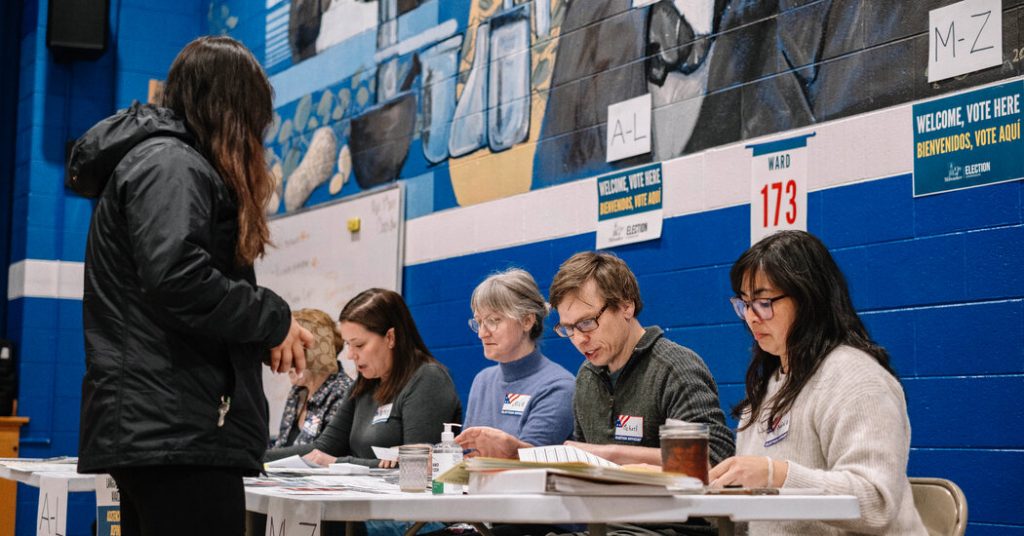The State of Wisconsin recently passed a ballot measure that adds language to the State Constitution prohibiting officials from receiving donations of money or staffing to help run elections. This measure was approved by voters during the state’s primary election and was rooted in complaints about the 2020 election, including objections to donations made by a group supported by billionaire Mark Zuckerberg and his wife, as well as assistance given by nonprofit groups to election administrators. The Republican-controlled Legislature pushed for these changes, arguing that election funding should come solely from the government and be allocated equitably to all jurisdictions.
Opponents of the ballot question argued that Wisconsin law already defined who could work as an election official, and that passing the amendment could have unintended consequences. By putting the question to a statewide vote, Republicans were able to bypass Governor Tony Evers, a Democrat who had previously vetoed a bill in 2021 that would have banned private grants for elections. While proponents of the ban on donated support expressed concerns about potential disparities in funding between left- and right-leaning jurisdictions in the state, Democratic groups and civil rights organizations opposed the measures, arguing that state funding for elections was inadequate and that the amendments were vaguely worded.
The issue of private financial support for election administration gained prominence after the 2020 election, when election offices faced increased costs due to the Covid-19 pandemic and outside donors stepped in to help. In response, 27 states with Republican-controlled governments have passed restrictions on such donations since 2020. Wisconsin joins the ranks of states seeking to limit private funding for election administration, with concerns about potential bias in funding distribution among jurisdictions. The Center for Tech and Civic Life, a nonprofit supported by Mark Zuckerberg and his wife, provided substantial grants to select election offices in Wisconsin in 2020, raising questions about the impact on election results.
Wisconsin has a long history of political division, with both parties frequently accusing each other of undermining democracy. The state has been slow to move on from the contentious 2020 election, with ongoing disputes over election results and attempts to remove key election officials. Recent changes to district maps have also raised concerns among Republicans about losing their gerrymandered hold on the state legislature. With a November rematch between former President Donald Trump and President Joe Biden looming, Wisconsin remains a key battleground state that could play a decisive role in the upcoming presidential race.
As the political landscape in Wisconsin continues to evolve, the debate over private funding for election administration reflects broader concerns about fairness, transparency, and the integrity of the electoral process. Supporters of the ballot measures argue that private funding creates an unfair advantage for some jurisdictions, while opponents contend that such funding helps ensure that elections run smoothly and securely. With deep partisan divides and ongoing disputes over election procedures, the outcome of these ballot measures in Wisconsin may have far-reaching implications for the state’s electoral system and political landscape.


